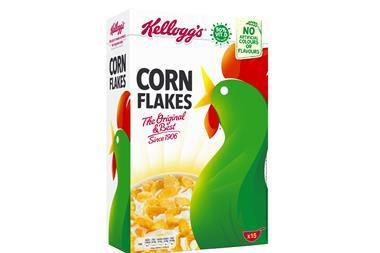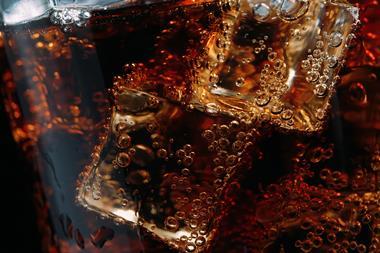Retailers are having to encourage time poor shoppers to avoid skipping breakfast with a range of formats and npd that stand out from the norm
Choice, choice and more choice. The number of breakfast options available to consumers in the UK seems to be growing every year. From bacon butties to breakfast bars, pastries to porridge, there’s an array of ‘good morning’ food for shoppers to get their hands on. However, this growing choice is taking its toll on traditional breakfast staples such as cereal and toast. According to Mintel research analyst Alice Baker, “fragmented eating habits have added to the woes of ready-to-eat cereals, with many cereal eaters skipping breakfast or snacking instead”.
She believes on-the-go breakfast treats and well-established cereal bars could be better placed to capitalise on consumer snacking tendencies, “while also appealing to the time-pressed”.
Many shop owners have discovered they can attract busy consumers who don’t have time for breakfast at home with new hot or chilled grab-and-go formats.
Ajay Odedra, owner of Boreham Village Stores, in Chelmsford, Essex, has done just that with his kitchen-style breakfast range.
He says: “Breakfast is a growing market for us as we have a kitchen area that sells food to go such as sausage and egg rolls that we make on site.
“People want fresh and healthy variations, too, so we have fruit salads, and an orange juice dispenser sits next to the coffee machine.”
Ajay uses social media to help promote his breakfasts. “We advertise on Facebook and in the local paper,” he explains, “but we also rely on word of mouth to let others know about what we do.”
Ajay believes his breakfast offering helps to create a selling point for his store, one which the supermarkets struggle to match.
“It’s a definite point of difference for us,” Ajay asserts. “You don’t see Sainsbury’s or Tesco doing coffee and breakfast the way we do.”
He’s hoping it will stay that way, too. “No trend lasts for ever, but I think for the next five to 10 years, hot and on-the-go breakfasts will continue to be popular with shoppers.”
Ramesh Shingadia, owner of two Londis stores in West Sussex, agrees. He has noticed more of his customers coming in for breakfast to take away.
“Food to go is such a dominant category at the moment and is increasing all the time. People are looking to add something to their morning coffee, such as a sausage or bacon bap. Everyone seems to want a fast breakfast.”
Even though breakfast to go is helping to drive sales in Ramesh’s stores, he is finding it harder to adapt to an evolving breakfast market.
“You have so many splits in breakfast now,” Ramesh points out. “Within food to go you have hot breakfast, protein bars and even energy drinks and shakes that some people buy to have before work. Then you have the traditional cereals and pots – it is very hard to keep up.”
Scott Graham, of McLeish Inverurie in Aberdeenshire, has been working hard to improve his cold food-to-go section by installing additional shelving under his store’s breakfast bar. Scott wants to make better use of his store layout in order to increase basket spend from shoppers on the food-to-go mission.
He says: “On the new shelving we are bringing in cereal bars, breakfast pots and other food-to-go items. We have a small range of protein snacks at the moment so we are expanding that range, too.”
Scott had been thinking of changing his breakfast offering for a while, but it’s all systems go now that a new Greggs has opened near his store.
The Greggs initially took food-to-go customers away from Scott, offering a café experience with plenty of seating, but Scott’s sales have now recovered.
Donna Morgan, of Brownlies of Biggar, near Edinburgh, is also looking to appeal to the masses with her breakfast range. She says: “Breakfast to go is now just as important as ambient cereals, and within both we make sure we have gluten-free and dairy-free alternatives. That way customers can enjoy their breakfast wherever and however they want.”
Rowse Honey campaign is just right
Rowse Honey, the UK’s number-one spread brand (Nielsen sales value MAT w/e 9 August 2017), is aiming to attract more millennial consumers to the breakfast occasion by encouraging them to add honey to their morning routine.
The brand’s ‘Three Bears’ campaign, based on the Goldilocks and the Three Bears fairy tale, launched across Rowse Honey’s YouTube and social media pages last October.
The series of breakfast cookery show videos explores the natural benefits of honey through fun and humorous serials.
The digital and social media campaign will run until February, forming part of a wider £4m PR marketing campaign for Rowse.
Catherine Allen, senior brand manager for Rowse Honey, comments: “We’re seeing a decline in the number of people taking part in the breakfast occasion, particularly among the millennial audience. However, with the trend of health and wellbeing high on consumers’ agendas, as well as a heightened awareness of the origins of products, we believe there is an opportunity to capitalise on and grow honey’s share of this occasion.
“Our Three Bears campaign is set to bring honey to the forefront of consumers’ minds and bring excitement to the category, by tapping into the nostalgia of the traditional fairy tale and engaging consumers with its modern, playful twist.”
Rowse has also updated the packaging of its core range, giving more on-pack serving suggestions for breakfast.
Clare Denham, head of category and market strategy at Danone Dairies, believes the trend towards on-the-go breakfasts has had a big impact on both the breakfast market and the yogurt category in particular.
She says: “As consumers’ lifestyles get more and more hectic they are increasingly relying on the convenience channel, including forecourts, to cater to their meal needs, and chilled yogurts and potted desserts are no exception.
“Within convenience, the category is worth £256m (IRI w/e 7 October 2017) and with the correct range retailers have a real opportunity to grow this even further.”
Denham believes millennial shoppers are driving demand for on-the-go and low-sugar breakfast formats.
“Consumers are trying to actively reduce their sugar intake,” she asserts. “Brands such as Light & Free respond to this need.”
The range is the latest addition to Danone Dairies’ portfolio and contains zero fat and zero added sugar, with only naturally-occurring sugar. “As such, it is a real game changer within the category and set to introduce more shoppers to dairy,” she adds.
Danone is also focusing its marketing efforts on its popular Activia range, available in 0% fat with no added sugar and breakfast pot formats.
Porridge power for winter
Pollen + Grace, the healthy food-to-go company, has a range specially developed for winter.
The product line-up is free from gluten, wheat, dairy and refined sugars, and features a mix of sweet and savoury pots for the breakfast occasion.
Stephanie Johnson, co-founder of Pollen + Grace, says: “The Raw Cacao and Raspberry Porridge Pot joined the line-up of Breakfast Pots for the winter menu, served hot or cold to meet consumers’ demand for more hot options during the colder seasons.”
The new flavour contains cacao, cardamom and flaxseed porridge with a raspberry compote, to help aid cognitive performance.
The shelf life on all Pollen + Grace vegan products has also been increased to five-six days, using only natural preservatives and superfoods.
Pollen + Grace Breakfast Pots are served in 190-230g plastic pots, designed for freshness and people travelling on the go (rrp £3.99).
Pollen + Grace’s signature granola pots, available in mango & tumeric and acai & blueberry (rrp £3.99), are also now suitable for vegans. The product’s honey content has been replaced by rice malt syrup.
Speciality breakfast
Edward Taylor, founder of Purition, believes stocking quality breakfast items with a healthy balance can help stop consumers skipping the meal altogether.
Purition is a natural alternative to meal replacement shakes and protein powders, made from wholefood ingredients and a vegetarian or vegan source of protein. Taylor believes his company is already tapping into the demand for more sustainable breakfast options.
“Our range offers a completely different alternative to traditional ‘healthy’ breakfast items, while also being quick and easy to prepare for those who are time-strapped in the morning,” he says.
Jordans Cereals, Britain’s number-one granola brand (Nielsen Scantrack Data 2017), is also focusing on offering shoppers a balanced range of breakfast products. The brand has introduced a new low-sugar cereal that contains less than 5% sugar.
The granola range is available in almond & hazelnut and cherry & almond flavours, each containing 1.3g and 2.2g of sugar per 45g serving respectively (rrp £3.99).
Jordans Cereals brand manager Andrew Dale says: “We have been working hard to create new low-sugar granola recipes that contain no artificial ingredients. Using chicory root fibre, the root fibre from a vegetable, we’ve created two new great-tasting granolas with less than 5% sugar.”
Facts - Source: Meridian Foods Study
• 50% - of Brits spend less than 10 minutes on breakfast
• 11% – of people don’t eat breakfast at all
• 58% - of people eat the same thing every day or alternate a few options
• 13 minutes - Average time for breakfast, compared to 30 minutes for dinner
• 61.5% - of over 55 year olds sit down to eat breakfast 7 days a week
Ajay and Donna have found that offering local products among their breakfast items goes down well with their shoppers. Donna says: “We try to offer a good selection, from our food to go and breakfast cereals, to our coffee machine, quality conserves and our local honey.
“Local products are great for us and our shoppers,” Donna adds. “Customers are loyal and like buying something a bit different that they can’t get anywhere else.
“As you might imagine, being in Scotland, our porridge oats and porridge pots are very popular. The oats are produced in Glasgow and wherever possible we try to stock locally-sourced products.
“It’s a clear point of difference for us and important to our customers.”
Donna believes a good hot breakfast offering is even more crucial during the cold winter months, helping to attract busy shoppers looking for something warm and comforting to start their day.
“People make more time for breakfast at this time of year,” Donna asserts.
“Young people like to have a grab-and-go breakfast, whereas older customers will sit down to eat a bowl of cereal. Most shoppers will have something, even if it’s just a coffee.”
She adds: “It’s vital that we react quickly and make sure we know which products our customers want at different times of the year.”
Ajay agrees. “In the winter especially, people want a warm meal and this changes in the summer,” he says, “but that element of seasonality means that our breakfast range can change throughout the year.”
Weetabix adds interest to its breakfast line-up
Weetabix is pushing its latest npd to encourage consumers to spend more time at the breakfast table.
Weetabix Additions launched in c-stores in August last year. The range is baked with fruit pieces and is available in apple & raisin and coconut & raisin variants (rrp £2.99 for 24 biscuits).
Kevin Verbruggen, head of brand for Weetabix, says: “Our new Weetabix Additions cereals have been a huge success, as the number-one launch of 2017. Consumers love the combination of tasty fruit pieces baked into their familiar Weetabix. It goes to show that the simplest ideas are often the best.”
The Weetabix drinks range has also been a hit for the brand. Currently available in chocolate, strawberry, banana and vanilla, a new Red Berry flavour will launch later this month (rrp £1.49 for 250ml).
The full range is also available in a pricemarked format (rrp £1 for 250ml).
Weetabix Protein is also available as an on-the-go drink, available in standard and PMP formats (rrp £1.99 for 275ml, rrp £1.50 for 275ml respectively).
Beth Reeve, brand manager for Weetabix Drinks, comments: “Now valued at £20m, the breakfast drinks category is continuing to grow in popularity at a rapid rate in the UK.
“The Weetabix On The Go drinks range is a must stock for the convenience and grocery channels. It appeals to an increasingly growing market of busy consumers who prefer to consume breakfast on the go – and this trend is only set to build momentum.”
Weetabix is currently working to further reduce sugar levels across its range, and set to launch more new products over the next few months.
Quaker Oats brand owner Pepsico believes that the hot cereals segment can provide real growth for retailers as the category has grown 1.2% in the past year (Global Insights w/e 23 September 2017).
Eric Williams, Quaker Oats marketing manager at PepsiCo, believes at-home breakfast products are still the biggest opportunity in terms of occasion, but the growth in the on-the-go breakfast market shouldn’t be ignored.
He says: “Quaker has retained its top position in hot cereals in 2016/17 with Oats So Simple and traditional Quaker Oats together accounting for 29% of volume sales (Mintel Breakfast Cereals, August 2017).
“Longer-term growth for the hots segment has been driven by the rise in popularity of porridge, given the health credentials of oats. High protein is seen as important when buying breakfast cereals by 32% of eaters. As a result of this growing trend, we made the decision to launch Quaker Protein.
“We anticipate the mainstream popularity of protein to continue, as health remains high on the consumer agenda. Convenience will remain a big factor as well. The Quaker To Go range caters for this demand as a wholesome, satisfying and portable breakfast to kick-start the day.”
Ramesh positions his porridge pot range beside his breakfast bars and shakes, with a coffee machine alongside, so the range is one of the first things customers see when they walk through the door.
He says: “Quaker’s Oat So Simple is our best seller, closely followed by Weetabix Vanilla On The Go. The Alpen bars are also among the top sellers, which just shows that more and more shoppers are looking to switch to food to go.”
Donna has also noticed that the cereal market isn’t as big as it once was, but she says plenty of customers in her store are still looking for a cereal-based breakfast.
She says: “Cereal pots are great for us because people can just add milk or water and enjoy a breakfast while out and about. We also sell Stouts bars and protein bars on a stand next to the coffee, so customers can quickly refuel and then hit the road.
“Saving time is a big thing for shoppers, especially during the week. If people have children or it’s the weekend then they are more inclined to have the traditional cereals from Nestlé and Kellogg’s.”
Ramesh thinks that the traditional cereal market is still important to the grocery trade, but says: “Take-home cereal is more of a distress purchase now and the category has definitely come under pressure and been challenged by newer products over the years.
“We have cut the space devoted to cereals in our store because people shop daily rather than weekly now, so we have to reflect that trend in our breakfast range.
“Cereal is no longer as big as food to go,” Ramesh admits. “I think most are happier to top up their basket with a breakfast bar or breakfast drink.”
Jim Jams extends its healthier spreads range
Jim Jams, the healthier spreads and preserves company, is looking to create jam products that appeal to modern-day living. The company believes breakfast still needs the jam category, despite a decline in bread consumption.
This month the brand is introducing four all-natural preserves that contain no added sugar and 100% fruit.
The new jam range is available in raspberry, blackcurrant, orange marmalade & strawberry flavours.
The jams join the Jim Jams Hazelnut Chocolate Spread, which contains 83% less sugar than the market leader (rrp £2.60 for 350g).
Kellie Bath, co-founder of Jim Jams, says: “We felt that there was a genuine opening for a hazelnut chocolate spread with a significantly lighter sugar footprint and honest, non-foggy labelling.
“Our chocolate spreads contain maltitol, a harmless sugar alcohol, derived from corn or wheat.
“It offers less than half the calories of sugar and is kinder to teeth and diabetic-friendly.”
Big brand and pricemarked cereals are still important in Donna’s store, but speciality and local products have a higher margin and attract more loyalty from her customers, she says.
Weetabix, one of the nation’s favourite breakfast cereals, is looking to appeal to consumers looking for a natural and adaptable breakfast cereal. The brand has grown by 3% in the past year and achieved more than £150m in retail sales in 2017.
Kevin Verbruggen, head of brand for Weetabix, says: “As with many grocery categories, breakfast cereals have had a tough time over the past few years. However, 95% of UK households still buy breakfast cereals each year, on average every fortnight; and spend £1.5bn each year.
“While the market is static year on year, we’re confident that we can grow category value by focusing on our large, growing brands and by bringing NPD to market.”
Weetabix is looking to increase its appeal with its protein and On The Go ranges. The Weetabix Protein range holds a 54% share of the protein cereal sector, the fastest growing segment in the cereal category (Nielsen 52 w/e 12 August 2017).
“Developing the Weetabix Protein range has been a direct response to the increase in consumer demand for food products that help people increase their protein intake,” Verbruggen asserts. “The Weetabix Protein range fulfils this demand, offering a wide variety of products.”
Beth Reeve, brand manager for Weetabix Drinks, adds: “Consumer behaviour is changing, and the need for convenience at breakfast is becoming ever more apparent. There are 3.5 billion occasions annually where people are either skipping breakfast or eating it out of home (Nielsen 52 w/e 12 August 2017). Indeed, research shows that almost a quarter (24%) of consumers buy breakfast on the go once a week, with 42% of shoppers spending between £2-£3 on their breakfast mission and 34% spending up to £5 (Nielsen 52 w/e 12 August 2017).
“As such, this is a major opportunity for brands such as Weetabix On The Go, which offers a cost effective yet nutritious breakfast.”
Weetabix sold more than 18 million On The Go bottles in 2017, a 51% increase year on year.
Lantmannen Unibake has pastries covered
Lantmännen Unibake is recommending that retailers stock up on products such as Cinnamon Swirls, All Butter Croissants and Pain au Chocolats to make the most of demand for on-the-go breakfast.
Samantha Winsor, assistant brand manager for Lantmännen Unibake UK, says: “Some 26% of consumers have pastries for breakfast out of home, rising to over a third (35%) among 16- to 24-year-olds. Only 13% of breakfast-eaters have these options for breakfast at home, making them a must-stock item.
“The Viennoiserie in-store category has seen consistently strong growth, with unit sales up by 11.5% year on year. Danish pastries are also on the up, with unit sales showing strong growth of 13.7%. This shows strong demand for French and Danish pastries.”
Winsor believes the breakfast-to-go category will continue to grow rapidly over the next few years, but urges retailers to maintain an affordable breakfast offering.
She says: “Some 64% of consumers say that they don’t eat breakfast out of home more often because it is too expensive. A hot drink and pastry is an affordable option, which has no doubt contributed to croissants becoming the fourth most popular out-of-home breakfast.
“With 53% of shoppers visiting more than one retailer to complete their food-to-go breakfast shop, more so than any other meal eaten out of home, it’s crucial for outlets to get their breakfast offer right. Retailers should serve pastries in grab bags and use POS material to promote the quality credentials of their range.
“They should also communicate usage ideas such as ‘great with coffee’, ‘a breakfast treat’, or ‘freshly baked,’ as well as considering cross-category deals.”
Nut butters
Another popular source of protein is nut butters. Peanut butter, the fastest-growing sector within jams and spreads, has become a popular option for breakfast (Kantar Worldpanel).
In the past three years, nut butters in general have continued to enjoy growing popularity due to their versatility and perceived health benefits.
Meridian Foods, the UK’s leading producer of nut butters, is aiming to capitalise on this trend and wants to prove to shoppers that nut butters can be an easy and versatile addition to any morning routine.
The group conducted an in-depth study into shopper habits and found that half of those surveyed (49.9%) would like more variety in their breakfast options.
Helen Money, nutritionist at Meridian Foods, says: “A nourishing breakfast does not have to be time consuming, just stirring nut butter into porridge increases B vitamins, iron, magnesium and zinc, all of which are needed for energy creation.”
With so many new formats hitting the market and the growing trend towards food-to-go breakfast options, retailers must ensure they display products in the right place across their store.
James Logan, commercial director at Refresco, believes offering a mix of on-the-go and at-home items will ensure that retailers’ breakfast range suits as many consumers as possible. He says: “The weighting towards on-the-go breakfasts should be determined by the store location, customer profile and purchasing habits of shoppers. There is little point looking to capitalise on out-of-home breakfast consumption if yours is an estate shop whose customers eat breakfast at home.”
Logan believes adding products such as fruit, eggs and juices to a store’s breakfast range can help widen its appeal. “Retailers need to ensure they have the mainstream breakfast items people want to consume on the go such as pastries, milk-based breakfast drinks, yogurts, coffees and juices. These need to be front of store so they can be seen and are easy to grab and pay for.
“With inflation a concern for many, on-the-go breakfast items should be available as PMPs or packaged in meal deals. Juices are ideal for cross-category promotions – 79% of consumers buy a drink with their breakfast (Atomik Research).”
Logan believes breakfast drinks will become more popular. The milk-based drinks market, for example, is expected to reach £236m by 2020 (Canadean). “With consumers becoming increasingly time poor, and more options available, breakfast drinks will increase in popularity. Volume sales of breakfast drinks in the last year rose 37.7%,” he says.
Clare Denham at Danone Dairies sees natural health yogurts and desserts as a big growth area. She says: “Breakfast is the occasion where consumption of yogurt is increasing most rapidly. As consumers don’t want to go without the first meal of the day despite their hectic lifestyles, the breakfast on-the-go segment, in particular, is experiencing growth.
“This is where breakfast yogurts with cereals – such as the Activia Breakfast Pot – and portable active health drinks – like Actimel – come into their own, so place them at the front of store so they are top of mind.”
While many retailers are focusing on providing meal-for-tonight solutions and capitalising on lunchtime trade, it’s also wise to remember breakfast – whatever form that may take.
Fill up fast with Quaker’s to go range
If your shoppers are looking for breakfast solutions in a hurry then Quaker’s Porridge To Go range of Breakfast Squares and Fruit & Oat Squeeze pouches may fit the bill.
Quaker To Go Fruit & Oat Squeeze pouches can be eaten straight out of the pouch, making the product perfect for on-the-go consumption. The pouches were relaunched last summer with a new look and recipe featuring a combination of natural yogurt, fruit and oats with no added sugar.
The 200g pouches (rrp £1.39) are available in three flavours: red fruit; apple & cinnamon; and blueberry.
Porridge To Go Breakfast Squares are made with soft and chewy 100% wholegrain oats, providing the same amount of oats as a bowl of porridge. With no artificial flavours, colours or preservatives, the packs are available in two flavours: golden syrup; and strawberry, raspberry & cranberry. Porridge To Go can be eaten cold or warmed in a microwave in 10 seconds.
The Porridge To Go Breakfast Squares can be purchased in two formats: single-serve 55g packs (rrp 75p); and a duo pack of two 55g packs (rrp £1.39).
Quaker Oats brand manager Alessandra Zorzitto comments: “With an increasing number of people looking for breakfast options that are healthier yet convenient, Quaker To Go caters for this demand and we anticipate the new range will be popular for those looking for a wholesome, satisfying and portable breakfast to kick-start the day.”






















No comments yet